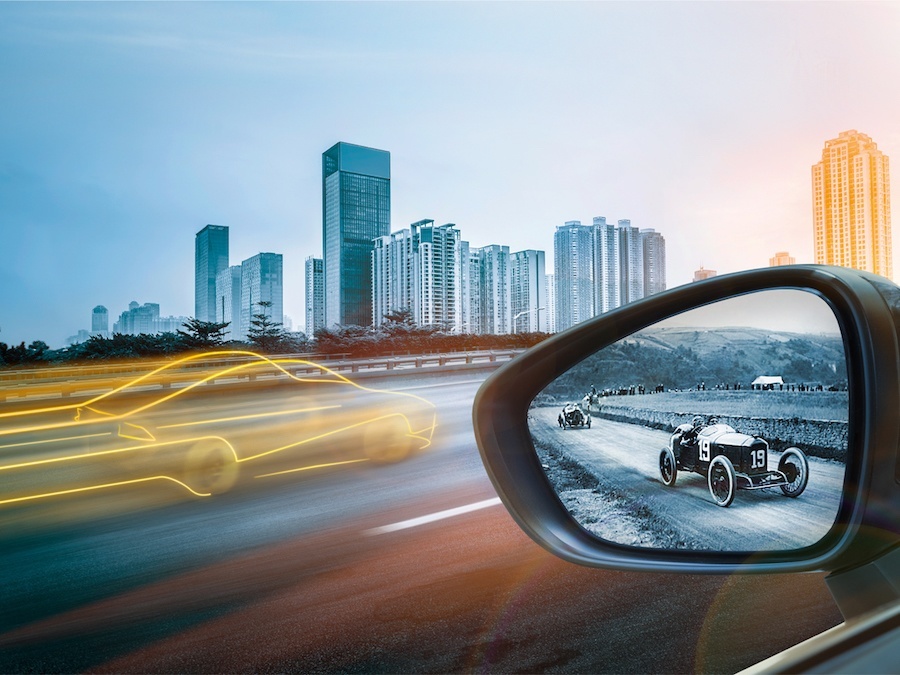It’s not often that I agree with George Osborne, the UK Chancellor of the Exchequer. In fact, I can’t think of any previous instance in which our two minds have been as one, but when he stood up in the House of Commons and gave his Budget 2016 speech, I was at least passingly approving of one of the proposals contained therein - a solid plan for the testing of driverless and robotic cars on UK roads.
According to the plan, a trial of driverless cars will begin next year on ‘a strategic road network’ yet to be named, but probably close enough to London and the south-east. The trails will kick off with ‘truck platooning’ convoys - where a lead lorry electronically controls a convoy of computer-aided trucks behind. That can slash fuel consumption (it’s more aerodynamically efficient to have several trucks running together than all on their own), congestion (you can safely run them closer together because the computers have faster reaction times) and driver fatigue.
Beyond that, driverless and autonomous car trials will start - something which, de facto, has of course already happened in the shape of clever software available in various cars, such as Tesla’s Model S and Volvo’s XC90 - but at least the UK government is recognising the fact that such technology exists and the need to start working with it.
There are also plans in place to set up trials of car-to-car and car-to-environment communications system along the M20 motorway between London and Dover, allowing hazard and traffic warnings to be flashed from one vehicle to another, as well as other useful information on journey times and so on. STG£15-million has been put aside for that plan alone.
Furthermore, fully autonomous pod-style vehicles will hit the streets of London this summer when the GATEway group, which already provides the track-based autonomous systems for Heathrow Airport Terminal Five, puts its driverless vehicles on the streets of Greenwich. The pods will trundle around the local area and provide instant lifts to the O2 Arena, the former Millennium Dome.
Those will be followed by similar pilot schemes in Milton Keynes and Bristol, while Nissan has announced that from next year, it will start making its Qashqai part-autonomous at its sprawling factory in Sunderland. The system, called Piloted Drive, will kick off in 2017 with a relatively simple 1.0 version, which can keep the car straight in a well-marked lane and follow other traffic at low speeds. Version 2.0 follows in 2018, which will be able to carry out autonomous lane-changing and hazard negotiation while version 3.0, due in 2020, will be able to tackle complicated city-centre junctions without any intervention from the driver.
Making the announcement at the Geneva Motor Show, Paul Willcox, Chairman, Nissan Europe said: “The Nissan Qashqai has always been a trailblazer in the market so it’s fitting that customers will get to experience the future of mobility in our award-winning crossover as early as 2017. It's a car people love. It's a car people trust. It pioneered the crossover boom, and now it will spearhead Nissan's move towards launching a range of vehicles with autonomous drive capabilities from 2017. Yet again, we are taking technology normally found in premium cars and making it accessible to millions of motorists.
“The introduction of Piloted Drive technologies will be an evolution not a revolution as the building blocks for this are already in place in many of our cars today through our Safety Shield Technology,” added Willcox. “With the driver in control, we want to remove the pain-points of being behind the wheel, like navigating heavy traffic, to put the excitement back into driving.”
And us? We’re doing nothing. When asked about Irish governmental (not that we currently even have a government) thoughts on autonomous cars, the response from the Department of Transport was: “The law at present does not provide for driverless cars - there is a presumption that someone must be driving a mechanically propelled vehicle. Technology in this area is advancing at a rapid rate, however the Department does not believe that it has yet reached a stage where legislation is appropriate. Any testing of driverless cars in this jurisdiction would therefore have to be on private land rather than on public roads. The Department will continue to monitor the development of this technology and how it is being managed in other jurisdictions. The Department will consider legislating as and when the technology reaches such a point that legislation is appropriate.”
Well, considering that Volvo and Mercedes are both poised this year to launch models (the S90 and new E-Class), which can effectively drive themselves on the motorway, we’d suggest that the technology has long since reached such a point. Ireland can’t sit back and ignore this technology either - we’re not a signatory to the 1968 Vienna Convention on Road Traffic, which was recently amended by the United Nations to allow for legislation on self-driving cars - that’s something that leaves anyone deciding to use their new technology in a legally worrying position.
We are, after all, supposed to be one of the European superstars of the high-tech economy and the dot.com world - with Google, Facebook and PayPal jobs for all, right? Yet our old, imperial, Euro-sceptic neighbour just left us in the dust.





